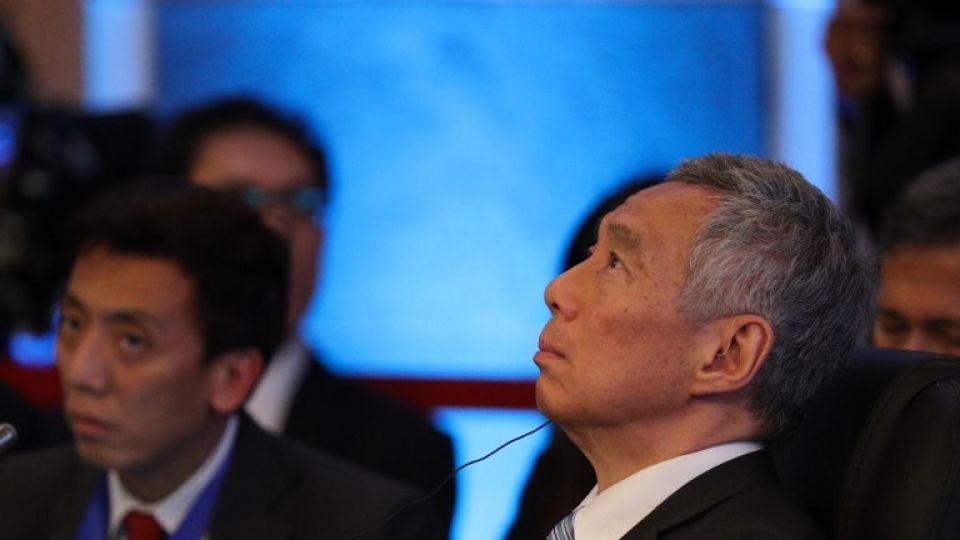February 20, 2018
As Singapore Prime Minister Lee Hsien Loong prepares to step down after the next general election, due to be held by 2021, the thorny issue of leadership succession remains.
In an interview with CNBC in October 2017, Mr Lee, who has been prime minister since 2004, said that he had assembled a strong team of younger ministers who would have to come to a consensus as to who should be leading the team into the next stage.
Here are some possible successors according to analysts and local media.
Chan Chun Sing
An ex-military man, Minister in the Prime Minister’s Office and Secretary-General of the National Trades Union Congress (NTUC) Chan Chun Sing is widely thought to be a frontrunner for the role of Prime Minister.
His rise through the ranks of the government after he left the military for politics has been swift. After the 2011 election, Mr Chan was appointed Acting Minister for Community Development, Youth and Sports and Minister of State for Information, Communications and the Arts. At 41, he was one of the youngest Cabinet members.
In 2013, he was appointed both Social and Family Development and Second Minister for Defence, positions he held until April 2015, when he became Minister in the Prime Minister’s Office. Later that year, he was appointed Secretary-General of NTUC and Deputy Chairman of the People’s Association.
Mr Chan’s [various responsibilities] has given him a good feel of the ground, Singapore Management University Associate Professor Eugene Tan told The New Paper.
Heng Swee Keat
Despite a health scare in 2016 when he suffered a stroke during a Cabinet meeting, Finance Minister Heng Swee Keat has been identified by local media and experts as a potential successor.
Prior to entering politics, Mr Heng served as Principal Private Secretary for Senior Minister to revered former Singaporean leader and founding father Lee Kuan Yew, who described him as having one of the “finest minds among the civil servants [he had] worked with,” according to Today.
Mr Heng went on to hold other high positions, becoming Permanent Secretary at the Ministry of Trade and Industry in 2001, and Managing Director of the Monetary Authority of Singapore (MAS) in 2005.
In 2011 he began his political career as Minister for Education, where he introduced several bold reforms to promote a student-centric, values-driven education system.
Since then, he has also played a central role in many high-profile projects and initiatives. He headed Our Singapore Conversation, a national consultation exercise, co-chaired the Committee on the Future Economy and chairs the Future Economy Council.
Mr Heng has also won numerous awards including the “Central Bank Governor of the Year in Asia-Pacific” Award by the British magazine The Banker, as well as the Gold Medal in Public Administration, and the Meritorious Medal in recognition of his contributions to the public service.
Ong Ye Kung
Though he may not have been in politics long, Minister for Education Ong Ye Kung may well be a top contender for the job.
Elected to parliament in 2015, Mr Ong was first appointed Acting Minister for Education (Higher Education and Skills) in Oct 2015 before being promoted to Education Minister the following year. He is also Second Minister for Defence.
His career prior to entering politics was equally impressive. Mr Ong was the Deputy Secretary-General of NTUC and later, the Director of Group Strategy at Keppel Corporation, where he oversaw long-term planning of the group’s activities.
Mr Ong also held Government positions before becoming a member of parliament, including Chief Executive of Singapore Workforce Development Agency (WDA).
His leading role in the SkillsFuture initiative, a national movement to provide Singaporeans with the opportunities to develop their fullest potential throughout life, may also put him in a solid position when the time comes to select the next prime minister.
Dr Gillian Koh, deputy director for research at the Institute of Policy Studies and Prof Tan told The New Paper that Mr Ong’s leadership in the SkillsFuture initiative is a telling sign of his ability.
“SkillsFuture is a big-bang initiative,” said Dr Koh, who felt that Mr Ong has gained a lot of exposure from his efforts to promote lifelong learning.


